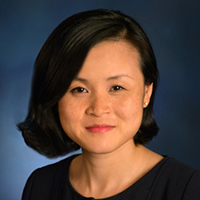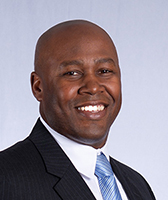CAS Announces Evolving Volunteer-Staff Model
Streamlining the CAS governance structure, better leveraging of volunteers for their subject matter expertise, and increased empowerment of the CAS staff are among the changes resulting from an evolving volunteer-staff model framework adopted by the CAS Board of Directors.

“As volunteerism is a core value of the CAS and a critical differentiator, the evolving volunteer-staff model will maintain and improve upon the best elements of the traditional model and volunteer experience, while empowering the highly-qualified professional staff to work more efficiently,” said Jessica Leong, CAS President
The impetus for change stemmed from the Future of Volunteerism Task Force, which concluded that the CAS volunteer staffing model does not fully and efficiently support the Society’s current and long-term initiatives, and recommended that the CAS would benefit from a reorganization of the existing committee structure and the inclusion of additional paid staff member support throughout the Society’s operations. The Task Force’s recommendations were informed by an extensive study that included a SWOT analysis of the current volunteer-staff model, inventorying the skills and knowledge necessary to support current initiatives, reviewing volunteer-staff functions, and benchmarking the CAS’ model against comparable industry organizations.
 “Given the aggressive and ambitious scope of work embodied in the new CAS Strategic Plan, the traditional volunteer-staff model needs to evolve to achieve a higher level of efficiency for the CAS,” explained Victor Carter-Bey, CAS Chief Executive Officer
“Given the aggressive and ambitious scope of work embodied in the new CAS Strategic Plan, the traditional volunteer-staff model needs to evolve to achieve a higher level of efficiency for the CAS,” explained Victor Carter-Bey, CAS Chief Executive Officer
The thrust of the evolving model puts a focus on the contribution of subject matter expertise and thought leadership by volunteers and a professional staff, led by the CEO, that executes strategy and has accountability for CAS operations.
The new Volunteer-Staff Model affects each of the three levels of organizational governance:
Board of Directors
As an organization that exists for the benefit of its members, CAS members – the Board of Directors will continue to lead the organization and set the strategic direction. The Board will function through a set of committees reporting to the Board, enhancing its productivity and effectiveness. This will allow the Board to spend more of its time on longer-term strategy development and engagement, such as interpreting market intelligence, enhancing their engagement with members, and elevating the CAS brand. Board committees have been established and are actively working, including the new Operational Oversight Committee and Diversity, Equity, and Inclusion Committee. These committees join the standing Board Committees for Leadership Development, Nominating, Discipline, Audit, and Risk Management.
Executive Council
With accountability for CAS operations assigned to the CEO, the Executive Council governance level will be sunset. Oversight of committee operations will be the responsibility of senior staff executives, including the Chief Financial Officer, Chief Learning Office, Chief Communications Officer, and Chief Growth Officer, reporting to the CEO. Senior CAS leaders will continue to serve as advisors to staff, and the Board-level Operational Oversight Committee will monitor CAS operations. CAS Fellows will vote on changes to the CAS Constitution and Bylaws to streamline CAS governance, including sunsetting the Executive Council, in conjunction with the 2021 CAS elections. Amendments to the Constitution and Bylaws require an affirmative vote of 10% of Fellows or 2/3 of the Fellows voting, whichever is greater.
Committee Structure and Volunteer Experience
In the new Volunteer-Staff Model, committees will transition to Working Groups, and Task Forces, replacing the long-standing set of existing committees. These groups will work to achieve specified goals supporting the CAS Strategic Plan and will be disbanded once their goals have been accomplished. Volunteer interests and skillsets will be better matched with their volunteer assignments, and volunteers will be leveraged for their subject matter expertise and thought leadership, while advising CAS staff. There will also be an increase in short-term “micro-volunteering” opportunities. Volunteers can expect to receive training and there will be a greater emphasis on seeking feedback on the volunteer experience. With greater accountability assigned to the staff, the evolving model will empower staff to make decisions more quickly and improve the “speed-to-market” for CAS work products.
CAS’s volunteer leaders were briefed on the changes at a meeting earlier this year. Since that time volunteer leaders and staff have partnered to inform their committees and begin implementing changes.
CAS leaders are discussing the evolving Volunteer-Staff Framework during a Town Hall on Monday, May 24.. For those who are unable to attend the Town Hall, a recording will be made available afterwards.
“I am inspired by and truly appreciate the time and dedication of our volunteers,” expressed Leong. “Volunteers have a tremendous impact on the CAS, and will continue to make valuable contributions as the Volunteer-Staff Model evolves.”
